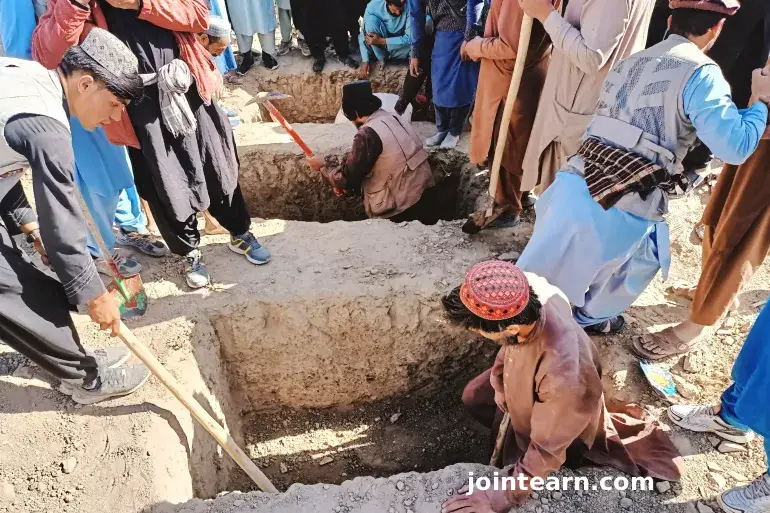
At least 10 people, including two children, were killed in Pakistani airstrikes inside Afghanistan, breaking a fragile 48-hour ceasefire along the border, Afghan officials said. The truce had paused nearly a week of intense clashes that left dozens of civilians and soldiers dead on both sides.
Details of the Air Attacks
The attacks occurred late on Friday in Paktika province, targeting three locations, according to a senior Taliban official who spoke on condition of anonymity.
- 10 civilians killed, 12 wounded
- Included three Afghan cricketers attending a local tournament
- Attacks took place in Urgun district, near the provincial capital Sharana
The Afghanistan Cricket Board (ACB) condemned the strikes, calling them a “cowardly attack” and announcing withdrawal from the upcoming Tri-Nation T20I Series against Pakistan.
Diplomatic Response: Crisis Talks in Doha
Afghanistan announced that high-level talks with Pakistan will take place in Doha, Qatar, on Saturday to address the ceasefire violation.
- Afghan delegation led by Minister of Defence Mullah Muhammad Yaqoob
- Pakistani delegation includes Defence Minister Khawaja Asif and intelligence chief General Asim Malik
Afghan officials warned that the country will retaliate against the attacks if violations continue, emphasizing the need for lasting peace along the border.
Pakistan’s Justification and Security Claims
Pakistan stated that the airstrikes targeted the Hafiz Gul Bahadur Group, a faction linked to the Pakistan Taliban (TTP). Islamabad claimed the group had carried out a suicide bombing and gun attack on Pakistani paramilitary forces in the Federally Administered Tribal Areas, killing seven troops.
The strikes reflect ongoing tensions over security, with Pakistan accusing Afghanistan of harboring armed militant groups. Kabul has denied these claims.
Humanitarian Impact and Civilian Toll
The cross-border violence has resulted in widespread casualties and displacement.
- 37 people killed, 425 wounded along the Afghan side of the border before the latest strikes, according to the UN Assistance Mission in Afghanistan
- Funerals in Spin Boldak drew hundreds of residents, including children wrapped in white shrouds
- Despite fears, some residents continue daily life, leaving homes and running businesses
The attacks highlight the fragile nature of ceasefires in the region and the humanitarian consequences of prolonged border conflicts.
Background: Escalation and Truce
The recent escalation began after explosions in Kabul, coinciding with the Taliban’s foreign minister visiting India, a longtime rival of Pakistan. Subsequent offensives along the southern border triggered Pakistan’s response.
The 48-hour truce began on Wednesday at 13:00 GMT, but Kabul stated it would hold until Pakistan violated it, which occurred with the latest airstrikes.


Leave a Reply